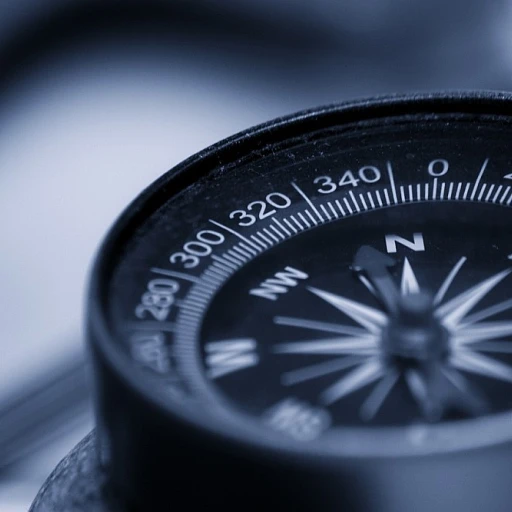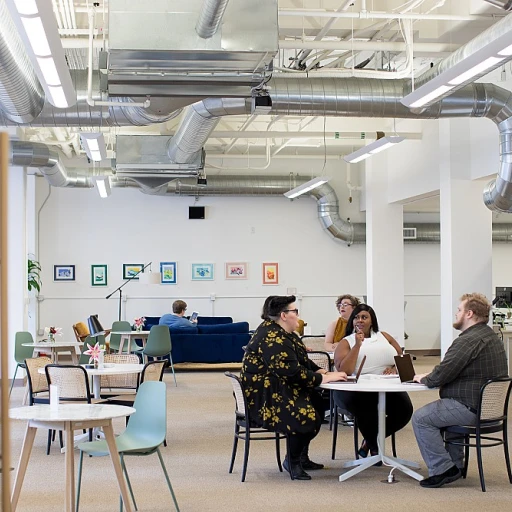
Key Responsibilities of a Human Resources Generalist
Understanding the Core Responsibilities
The role of a Human Resources Generalist is multifaceted, entailing a broad range of duties pivotal to the smooth functioning of a company's business operations. A HR Generalist bears the responsibility for maintaining productive employee relations, implementing employee procedures, and ensuring compliance with employment laws and regulations. By overseeing the foundational aspects of human resources, they play a significant role in shaping the organizational environment.
Managing Recruitment and Talent Acquisition
One of the chief tasks of a HR Generalist is managing the recruitment process, which involves developing job descriptions, posting open positions, and screening potential candidates to fill job vacancies. Effective talent acquisition not only ensures that the right candidates are hired but also supports the continuous development of the workforce, aligning with company goals.
Administrative Duties and Policy Implementation
This role encompasses a variety of administrative duties, including enforcing company policies and assisting in their development. This requires a comprehensive understanding of existing procedures policies, as well as the ability to contribute to the creation of new policies that conform to ever-evolving employment laws. A HR Generalist must possess a blend of professional human skills and business acumen to enact policies that facilitate the smooth operation of all departments.
Championing Training and Development
With a focus on fostering a culture of continuous learning, HR Generalists engage in training development initiatives that elevate employee skills. By assessing both current and future workforce needs, they design programs that bolster professional growth, ultimately enhancing employee performance and satisfaction. A solid foundation in education experience, often demonstrated by a bachelor degree, is essential for executing effective training programs.
To further explore the nuances of the role, consider examining how a dedicated professional contributes to the strategic planning of human resources, as discussed in our article on the role of a human capital strategist in modern HR.
Essential Skills for Success
Mastering the Art of HR Communication
To excel as a Human Resources Generalist, it's crucial to hone a robust set of skills that will facilitate effective communication within the organization. These skill sets are not only vital for fulfilling daily responsibilities but are also indispensable when it comes to employee relations, understanding business operations, and aligning with the company’s procedures policies.
Here are some essential skills that you, as an aspiring or current Human Resources Generalist, should focus on:
- Interpersonal Skills: Building strong, trusting relationships with employees and management is a core part of the role. This requires empathy, active listening, and the ability to address concerns or conflicts promptly and effectively.
- Communication Skills: From talent acquisition to the execution of policies, clear and concise communication is imperative. A professional human resources generalist will often have to convey complex laws and regulations in understandable terms, ensuring that all employees are informed and compliant.
- Problem-Solving Abilities: In any HR generalist job, unexpected challenges can arise. The capability to analyze situations, generate solutions, and implement them swiftly is indispensable.
- Knowledge of Employment Laws: A comprehensive understanding of employment laws and regulations ensures that the company remains compliant and avoids legal pitfalls.
- Time Management: Balancing various responsibilities such as sourcing candidates to fill job positions, ensuring ongoing training development, and overseeing employee relations demands exceptional organizational skills.
The continuous development of a distinctive HR communication strategy is also fundamental. By doing so, you support a positive work environment and contribute to seamless business operations. Enhancing these skills through various educational and professional development opportunities, such as a bachelor degree tailored to human resources, will significantly bolster your career. A well-rounded development ensures you are equipped to handle the dynamic nature of the human resources field, ultimately advancing your ability to support and improve your company's human capital initiatives.
The Importance of Effective Communication
The Power of Communication in HR
In the field of human resources, communication is more than just exchanging information. It's an indispensable tool for facilitating employee relations, aligning with business operations, and ensuring the adherence to employment laws and policies. Effective communication is a cornerstone for any resources generalist, as it directly influences their ability to fill roles efficiently and develop the workforce. A human resources generalist often finds themselves navigating complex discussions involving employee development, job descriptions, and compliance with laws and regulations. Clarity in conveying procedures policies and understanding the professional nuances becomes integral for success. It's not just about having the right communication skills; it’s about mastering the art of conversation to foster a productive work environment. Strong communication skills also include providing constructive feedback. In this regard, resources and training programs may be essential for continual professional growth. Those interested in honing such skills can refer to Mastering the Art of Feedback in HR Communication, a valuable resource for understanding its significance in the HR domain. Furthermore, human resources communication works as an intermediary, ensuring that policies are adequately communicated across the organization. This requires professionals to be well-versed in both company-specific expectations and broader employment policies. By having this knowledge, a generalist can seamlessly integrate into the human resources and business aspects of their role. Ultimately, the experience and skills necessary to succeed in a generalist job go beyond what one might learn in a bachelor degree program. Continual development in communication strategies is as crucial as understanding the job titles one manages. By weaving effective communication into the HR framework, a generalist can enhance both their professional standing and their company’s operational efficiency.Navigating Challenges in HR Communication
Encountering and Solving HR Communication Blockades
Communication is a cornerstone of success in the human resources field, yet it is also an area rife with challenges. As HR generalists navigate their roles, they often find themselves facing various communication hurdles that can impact their ability to perform effectively. Understanding these obstacles and how to overcome them is essential for facilitating smooth employee relations and maintaining a positive work environment.
One common challenge is the alignment between company policies and communication procedures. HR generalists must ensure that all communications adhere to established policies and procedures, which can sometimes create bottlenecks or delays. This requires a deep understanding of the employment laws and regulations that govern business operations, as well as problem-solving skills to address any discrepancies that arise.
Another issue HR professionals often encounter is the diversity of communication styles within a company. Different departments and job titles may have varying preferences for information exchange, which can complicate interactions. An effective HR generalist will leverage their communication skills to bridge these gaps, fostering an environment where all employees feel heard and understood across the department and the company.
Additionally, the conveyance of sensitive information poses a distinct communication challenge. HR generalists must strike a balance between transparency and discretion, carefully managing the dissemination of data related to employee relations, talent acquisition, and business operations. Their expertise and knowledge in maintaining confidentiality without sacrificing open communication are crucial here.
Finally, the rapidly evolving landscape of technology introduces its own set of barriers. Keeping up with new communication tools and integrating them effectively into existing systems requires continuous learning and professional development. An HR generalist's ability to adapt swiftly and leverage technology to enhance communication will greatly influence their success in this area.
Overall, addressing communication challenges demands a proactive approach, a commitment to ongoing education and experience, as well as the ability to cultivate impactful interdepartmental relationships. The role of a human resources generalist is undeniably complex, but with the right skills, it becomes a pivotal part of the company's professional development.
The Role of Technology in HR Communication
The Impact of Modern Tools on HR Dynamics
In today's rapidly evolving business landscape, technology plays a pivotal role in streamlining the responsibilities of a Human Resources Generalist. The integration of modern tools facilitates enhanced communication and ensures a seamless flow in business operations. By advancing their skill sets with these technologies, HR professionals can substantially improve their efficiency.
Here’s how technology contributes to effective HR communication:
- Streamlined Processes: Digital tools aid in automating repetitive tasks, such as keeping track of employees' records and managing payroll systems. This automation not only saves time but also minimizes human errors, allowing HR personnel to focus more on employee relations and talent acquisition.
- Enhanced Communication Channels: Tools like video conferencing and instant messaging platforms have become essential. They bridge the gap between different departments and facilitate real-time communication, even when dealing with remote teams. This ensures that all team members are aligned with the company's goals and policies.
- Data-Driven Decisions: With advanced analytics tools, HR generalists can leverage data to drive strategic decisions. These tools provide valuable insights into employee performance, aiding in the development of effective training programs and refining job descriptions.
- Compliance and Security: Handling sensitive employee information is a critical aspect of the generalist role. Digital tools ensure that all procedures comply with employment laws and regulations, providing a secure environment for the data.
As companies continue to embrace technological advancements, ongoing training and development become crucial. HR professionals must invest in education and continuously update their knowledge to stay competitive and effectively fulfill their job titles within the department. This proactive approach ensures they can support both the company and its employees in achieving growth.
Continuous Learning and Development
Commitment to Ongoing Growth and Knowledge Enhancement
The dynamic nature of the human resources field necessitates a commitment to continuous learning and development. A human resources generalist must stay updated with the latest employment laws, company policies, and business operations to effectively fill their role. This ongoing education and experience enable them to navigate complex employee relations and create proactive strategies that align with the company’s objectives.
For a generalist, acquiring new skills and enhancing existing ones is crucial. Training and development programs tailored to specific job titles within the HR department offer insights into the latest resources, including technology, that can streamline processes and improve communication. These programs often highlight the importance of pairing professional human attributes with strong problem-solving capabilities, essential for effective policy and procedure implementation.
Moreover, gaining a deeper knowledge of communication skills and talent acquisition strategies ensures that a human resources generalist will adapt to changes and confidently address challenges within the workplace. This becomes even more significant as they interact with various company departments, where their skills and qualifications contribute to a cohesive business environment.
Education, such as obtaining a bachelor’s degree, along with relevant certifications, strengthens a generalist’s ability to serve as a bridge between employees and management. This facilitates a better understanding of job descriptions, the generalist job responsibilities, and the professional growth opportunities available within the organization.
Ultimately, the development of a human resources generalist is not only a commitment to personal career advancement but also a pivotal factor in the growth and success of the entire company. As they continue to learn and adapt, they become instrumental in transforming the HR landscape, making them invaluable to any organization.













